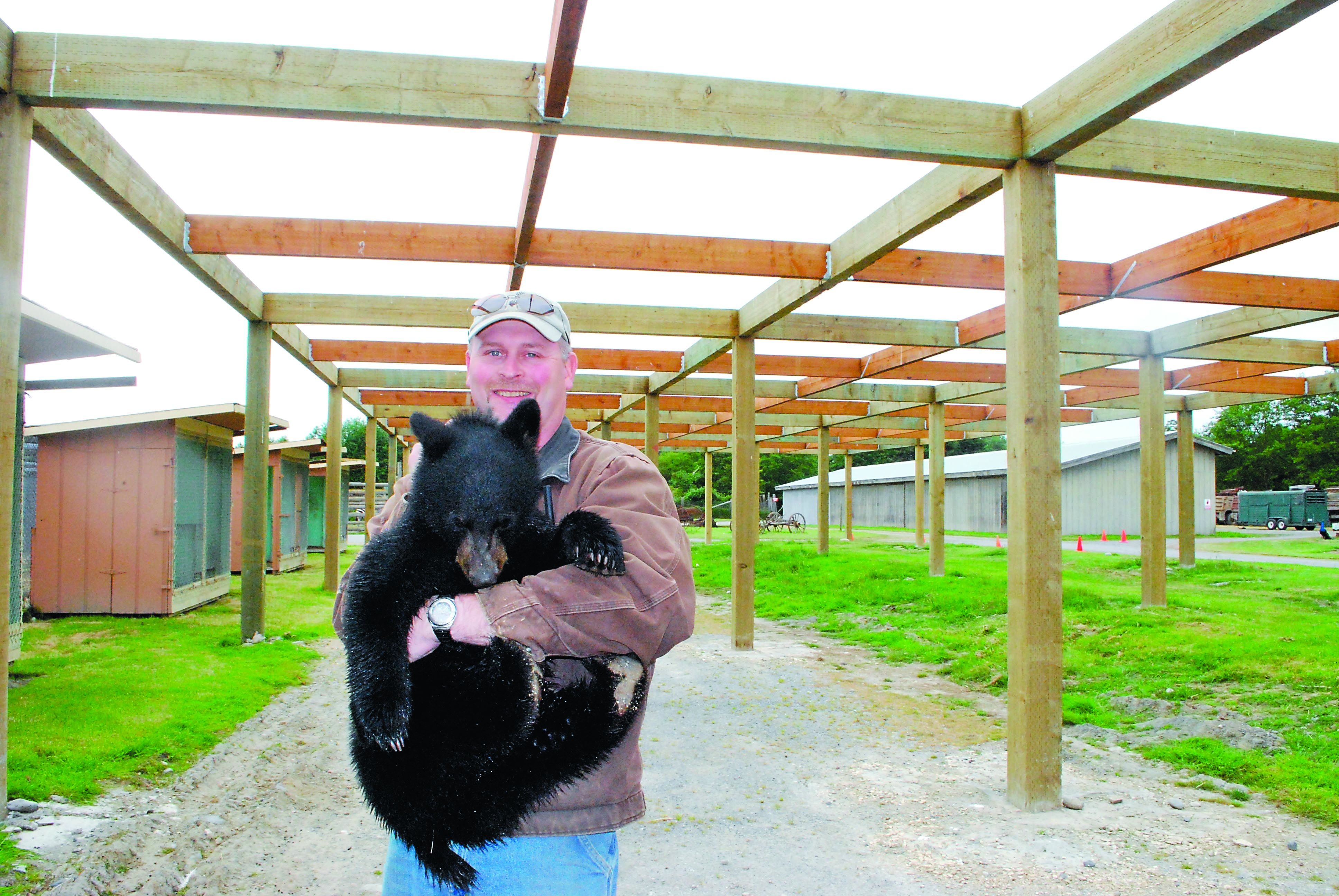SEQUIM — Marking the Olympic Game Farm’s 40 years as a Dungeness Valley tourist magnet, Robert Beebe, farm president, said the captive-bred animal park’s facilities have improved and are expanding to meet growing visitation.
Beebe, who took over the family-owned farm’s business operations in 2008, addressed more than 50 people at Tuesday’s Sequim-Dungeness Valley Chamber of Commerce luncheon at SunLand Golf & Country Club.
He said overall revenues at the Ward Road park have increased 52 percent, which he attributed to aggressive marketing that is drawing larger crowds.
His grandfather, Lloyd Beebe, opened the farm to the public in 1972. Both Lloyd Beebe and wife, Catherine, died in 2011. Lloyd was 94, and Catherine was 88.
Robert Beebe said the farm has opened a new restaurant in partnership with Hardy’s Market of Sequim and Carlsborg, remodeled its gift shop and ticket booth, and improved its aquarium.
Animal shelters and enclosures have been upgraded, and a large lion and tiger enclosure are under construction, he said.
Beebe played a video that highlighted farm upgrades.
The game farm has seen 27,780 visitors to date this year, he said, which in trickle-down dollars “bleeds over to the business people in Sequim,” he said.
The game farm saw 65,080 visitors and 20,334 vehicles drive through the first year he took over the business operation to help his grandparents at their home overlooking the 80-acre farm, he said.
That compares with 83,271 visitors and 24,091 vehicles that last year drove through the farm that shelters lions, tigers, cougars, bears, yaks, llamas and a number of other animals normally seen in the wild.
To improve, expand and maintain the facility, Beebe said the farm since 2008 has spent $460,000 for local supplies.
The game farm will celebrate its 40th anniversary in August, he said, plans of which are to come.
It will be combined with a
fundraising event to help pay for expanded animal enclosures that have been built or are under construction.
“It’s a lot of work,” Beebe told the chamber audience. The animals require thousands of bales of hay grown on the farm or donated by neighbors who have fields but don’t need the feed.
“We’ve had a lot of support from our neighbors who learn from the fire marshal here that they have to cut their grass, whether they use it to feed animals or not,” Beebe said.
The farm’s animals also go through about 100 loaves of wheat bread each week, according to Beebe.
Rabbits and peacocks have been dropped off there overnight, he said, and his staff routinely checks fencing around the farm’s perimeter to ensure that wild predators such as coyotes are not sneaking in to attack animals.
The aquarium is now stocked with large trout, steelhead and sturgeon.
“Some are spawning now, which shows you something’s been done right for them to do that,” he said.
Tours have been expanded in recent years with the addition of a walking tour and a mini-tour that includes the game farm’s “studio barn.”
Built in 1862, the studio barn is still home to Disney movie sets such as the original cave scene of “Those Calloways.”
The barn is full of props, lights, antiques and memorabilia of the filming days that Lloyd Beebe inherited in 1972 when Disney founder Walt Disney’s brother, Roy Disney, died.
The farmland originally started as a filming location for Walt Disney in the early 1950s — formally called Disney’s Wild Animal Ranch.
In the summer of 1972, Lloyd and Catherine Beebe officially opened the game farm to the public as a business.
Filming continued there until the late 1990s.
Movies included “The Vanishing Prairie” and “The Incredible Journey” — the first films on the farm — as well as “Charlie the Lonesome Cougar,” “King of the Grizzlies,” “Never Cry Wolf” and many other Disney films and Disney’s “True-Life Adventures” documentaries.
Television shows shot there were “Grizzly Adams,” “The Beachcombers” and “Northern Exposure,” with cameos in many other shows.
Lloyd was also an adviser to the U.S. Department of Agriculture, the Washington state Department of Fish and Wildlife and others in wildlife conservation, rehabilitation and animal housing facility design.
________
Sequim-Dungeness Valley Editor Jeff Chew can be reached at 360-681-2390 or at jeff.chew@peninsuladailynews.com.

